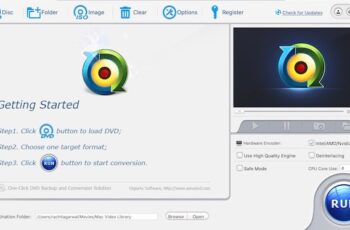Real estate is a booming, all-season business with considerable potential. And combining real estate with recent technological innovations can take the sector to immeasurable heights. Technology helps streamline operations and building management, speeds up clients’ decision-making process, eases tenant access to building information, and increases sales. Moreover, technological inputs help protect property investments, increase property value, and improve working procedures. 
Technology and real estate have a robust relationship. Technological advancements play a crucial role in shaping the real estate industry, from the advancing functioning of buying and selling platforms to widening accessibility.
Whether for selling, buying, construction, home services, or leasing, the involvement of technology is dramatically changing the interaction process in the real estate business. Here are a few must-have tech trends for all real estate agents.
A reliable accounting software
Accounting is the most vital part of the real estate business. Accounting helps track business incomes and expenditures and ensures statuary compliance. Further, accounting helps organize things that happen over time and develop a business plan. You must understand that curating a good business plan is essential to run a successful real estate business.
So hiring an accountant would be a good idea. An accountant understands how to keep meticulous books, can help you structure day-to-day business in the most tax-efficient way possible, and uncover unique insights into improving cash flows.
However, an accountant alone won’t be sufficient. You will require efficient accounting software to keep your records and books intact. This software can simplify accounting for real estate leases, generate critical financial reports, save time, and promote data accuracy. Moreover, this software can sync all financial data, produce professional-looking financial statements, gives detailed insights, and streamlines tax filings.
Customer Relationship Management tools (CRM)
CRM is a vital tool for real estate agents. It improves customer relationships, provides trustworthy reporting, better knowledge of customers, better segmentation, better protection of data, and speedier communication. Additionally, CRM analyzes performance reports, increases efficiency, prioritizes sales, retains customers, and responds faster to customer inquiries.
All real estate agents must invest in CRM tools because of their unique features, including track-generated leads, lead verification, timely follow-ups, and connecting to social media-generated leads.
You’ll find several CRM software and tools in the market, such as salesforce, NetSuite, Pipedrive, and many more. What’s crucial is that you thoroughly investigate each software, lay out your requirements, and decide which ones best suit your needs. Make sure the tool you opt for is easily accessible, easy to learn, and the system integrates with other applications.
Virtual Reality (VR)
Virtual Reality is becoming a trend in many industries, including real estate. VR allows you to virtually explore and experience an outcome before deciding on an action. It is a remarkable innovation constantly making breakthroughs in several sectors, including fashion, retail, and others.
Virtual Reality increases knowledge provides an active experience rather than passive information and helps understand complex concepts. Virtual technology has come in handy, especially during the pandemic, due to limited travel and exposure. It makes life easy by allowing customers to visit a house for sale without leaving the comfort of their sofa. Many studies show that most potential buyers rely on a real estate agent’s website to purchase a property.
When integrating virtual tours on your website, you must remember a few vital things. Make sure to stage 3D tours with furniture so people can envision living in the property, keep the tour appealing for users, feature high-quality visuals, and make your goals clear.
Big data
Data analysis helps drive data-driven facts, which are highly resourceful in making informed judgments. Understanding that the current real estate market thrives on historical and current-time data is pivotal to detecting trends and providing insights.
Technology and big data assist in pricing a property by providing real-time area price research, reducing risk by forecasting future pricing, reducing the possibility of selecting incorrect properties, and improving efficiency.
Big data increases productivity, makes better decisions, manages online reputation, cuts costs, increases revenue, and improves customer service. Moreover, big data provides customer-centric property solutions, meets demands, and increases customer satisfaction. Therefore, big data is crucial for risk mitigation, improving marketing strategies, understanding customers’ needs, and simplifying evaluations.
Automated email tools
Many people believe that emails have become old-school and have lost their touch. However, that is not true. Emails are still the most professional means of communication used by businesses worldwide. What’s changed is the structure and patterns of emails sent. In addition, increased automation is making emails better and more efficient.
Automated emails don’t require interventions, benefits your sales team, nurture leads to make them more receptive, and increase brand awareness. Additionally, automated emails increase personalization, help find your audience, keep your customers engaged, provide more detailed reporting, reduce costs, boost business revenue, and offer better segmentation.
Automated emails can significantly benefit your real estate business enabling interested buyers to click and buy, creating bonds with customers, and gaining feedback.
Smart home technology
If you wish to boost your real estate business, investing and integrating smart home technology into your projects is a must. Smart home technology considerably raises your property’s efficiency, makes it more appealing, and improves quality. Some of the most common built-in intelligent home technologies include:
- Sound systems
- Home appliances
- Lighting
- Thermostats
If these amenities become the norm for new builds, buyers will be more likely to choose a house with them. Also, it is essential to remember that contrary to what you might believe; only young people do not favor these traits. Instead, many middle-aged buyers want to buy a fully furnished home with smart technology so they can save time and live more comfortably.
Wrapping up
The real estate market is transitioning and becoming safer and more reliable for investors. We are aware that new technologies are constantly inundating real estate agents. These gadgets are meant to make your job simpler. While keeping up with the most recent trends can be challenging, let alone choosing which ones to invest in for your company, locating useful tools is simple. The fundamental challenge is deciding which ones are useful. Therefore, always consider going for high-touch tools instead of high-tech.




